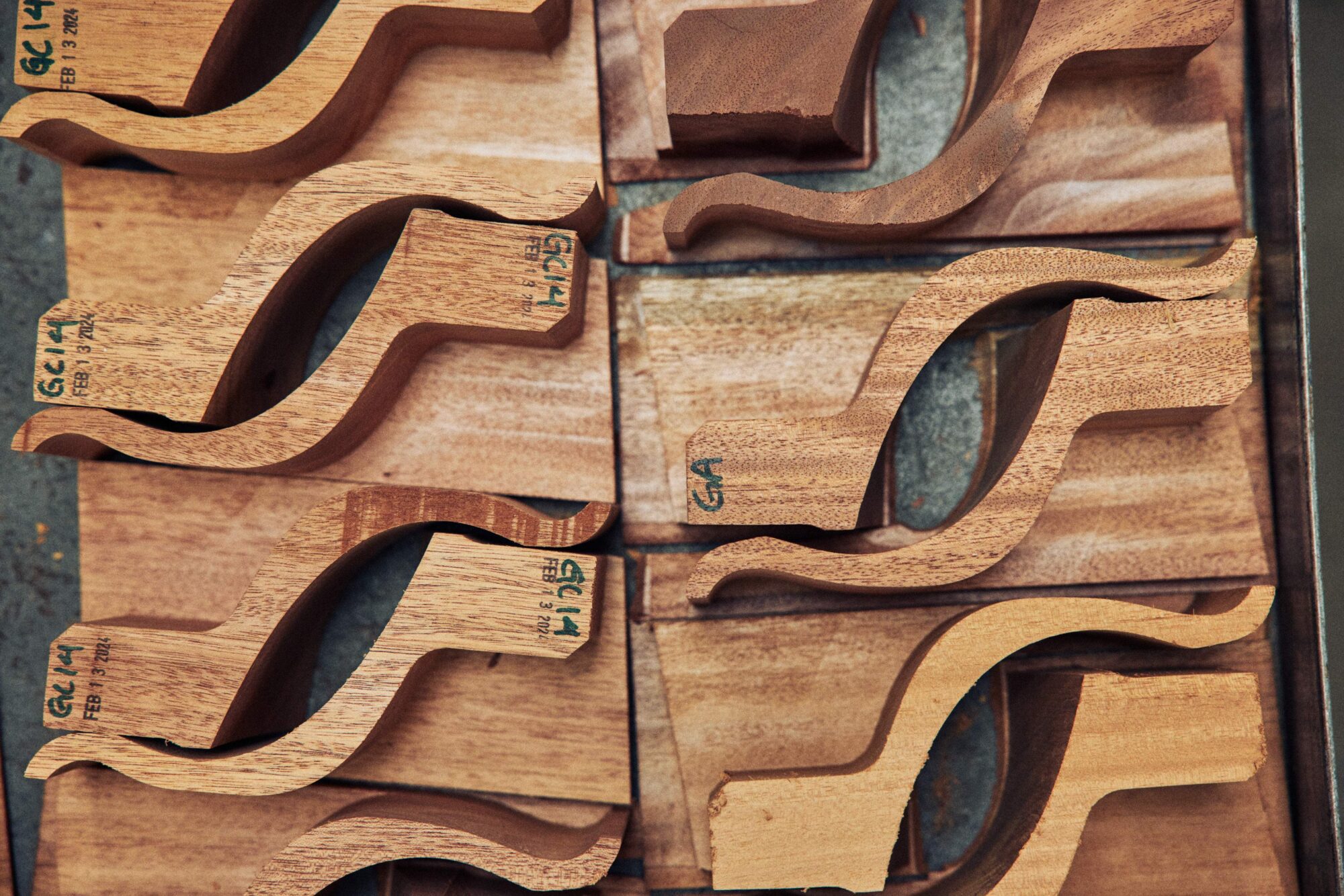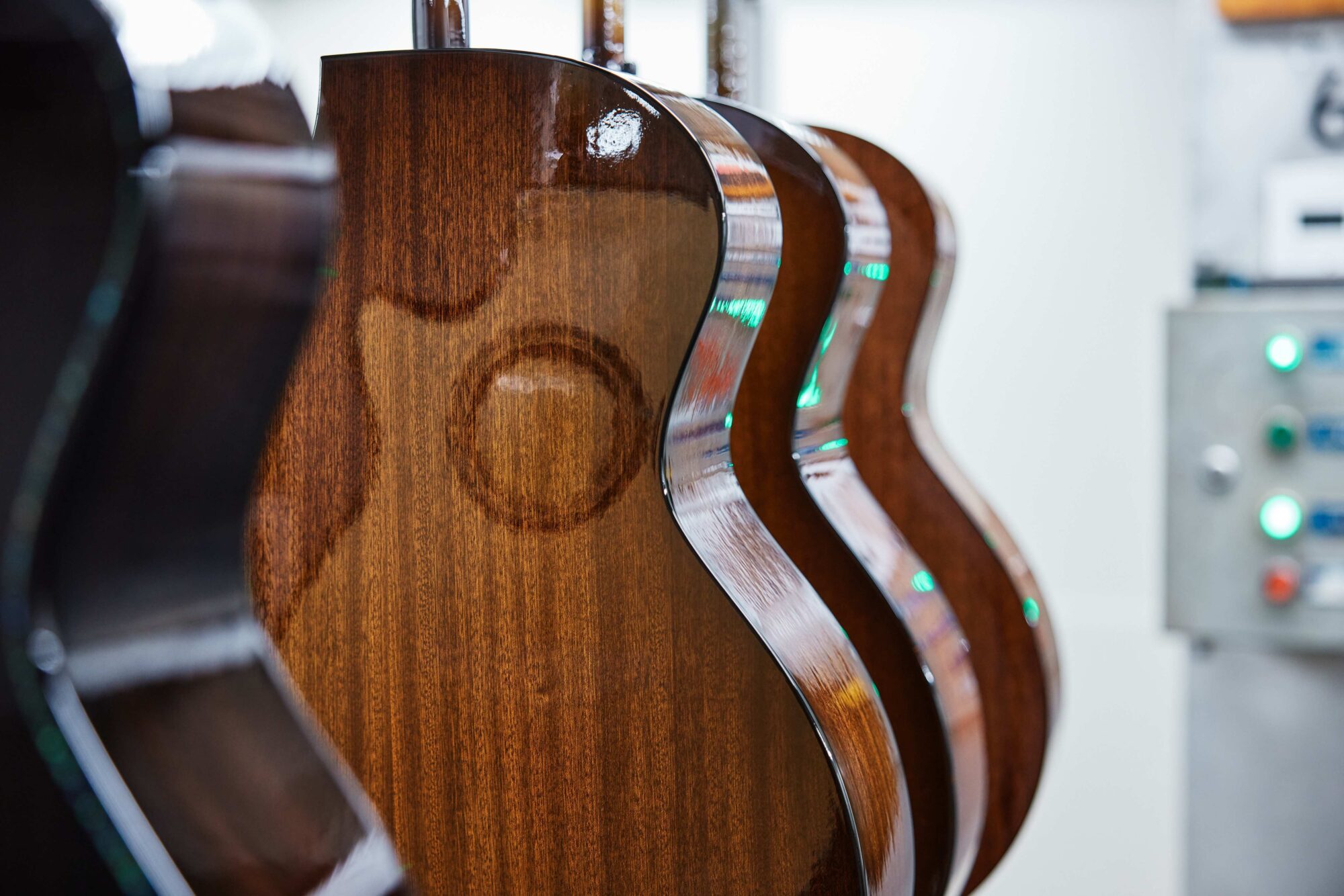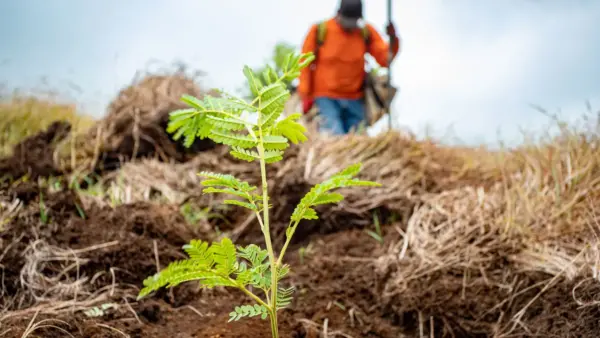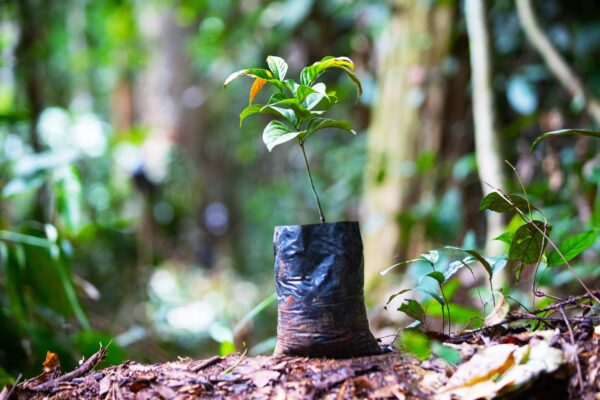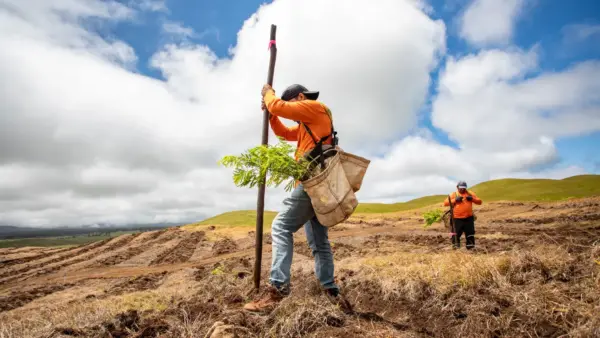But We Can Strive for It.
The trick is to keep trying. Every day. Be efficient. Get educated. Make the best choices you can.
When Taylor Guitars started in 1974, sustainability wasn’t part of the conversation. People who bought and sold wood tended to see trees as inventory, not ecosystems. Over time, however, as we’ve come to better understand our footprint, we’ve continually rethought how we design and build, where we source the materials we use, and how to reduce waste. But we haven’t arrived, and truthfully, never will. That’s not defeatism. It’s realism. Sustainability isn’t a finish line. It’s a direction. And it’s a core value for us.
Restore What We’ve Taken
Where and when we can, we try to replenish the resources that our industry has traditionally relied upon.
In Cameroon, in partnership with the Congo Basin Institute, we’ve planted tens of thousands of ebony and fruit trees and underwritten groundbreaking ecological research. In Hawaii, via our partnership with Pacific Rim Tonewoods, we’re planting a koa forest in an area that was once an ancient koa forest but cleared for pastureland a century ago. Wood from these trees will be used for future generations of guitars. We’re also working with other private landholders on the Big Island to restore their native forests to a healthier, naturally regenerative state. And in California, we’re giving new life to felled urban trees that would otherwise be discarded. You can learn more about these efforts elsewhere on this website. These are just some of our biggest initiatives. We’re always looking for new opportunities to be ethical stewards of the natural resources we use.
Less Waste — More Meaning
As a business, a key reason for being efficient and reducing waste is certainly to save money. But it’s bigger than that.
When we redesigned our guitar necks, we also changed our wood cutting specifications to get more yield from each tree than ever before. We were the first musical instrument company to make fingerboards from variegated ebony — wood that had for decades been discarded for being cosmetically “imperfect,” even though it functions the same (and looks beautiful). And we’ve given “leftover” wood new life — as guitar slides, wall hangers, even knife handles for our friends at Buck Knives. Meanwhile, the infrastructure we’re helping to build around sourcing urban wood reduces our reliance on natural forests in other parts of the world.
We’ve also improved our guitar finishes and refined our finish application processes, resulting in cleaner formulas, fewer emissions and less waste.
